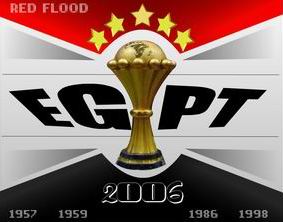 In the early 1970s, I was an editor in the research department of el-Gomhoreya newspaper. We were cramped in a small room and were often visited by the paper's major writers when they came to submit their articles or receive their paychecks. Our visitors included such authors as Mohamed Ouda, Kamel Zoheiri, Sami Dawood, Ahmed Abbas Saleh, and Mohamed Souad Galal.
In the early 1970s, I was an editor in the research department of el-Gomhoreya newspaper. We were cramped in a small room and were often visited by the paper's major writers when they came to submit their articles or receive their paychecks. Our visitors included such authors as Mohamed Ouda, Kamel Zoheiri, Sami Dawood, Ahmed Abbas Saleh, and Mohamed Souad Galal.
Very rarely, we would successfully persuade the then Editor-in-Chief Mostafa Bahgat Badawi to give us a page or half a page of the several pages allocated to football news to publish the research we had conducted on important national and international issues.
When our request was approved, the next day we would find Nassef Selim, the head of the sports department, standing in the corridor between our two facing rooms warning everyone that it is the sports pages that attract readers, and thus bring in advertisements. He would remind us that it is the work of the sports editor that got us paid at the end of the month. He would even go so far as to say that the abstruse material we wrote about would eventually turn us all into beggars if it continued to be published at the expense of the sports section.
Indeed, if you cannot laugh at the walking dead, with whom can you laugh? We used to burst out laughing upon hearing his words, because, despite his exaggeration, he was not completely wrong. In fact, demonstrations were held in front of the Gomhoreya building by football fans that came to either show support for or protest against an analysis written by one of our sports critics after a pivotal match between Ahly and Zamalek. However, we continued writing our complicated material, hoping that one day the real value of things would become clear, and that the issues that really concerned the people would take priority over material that brought in advertising and money through a phenomenon bordering on mass hysteria.
Until the early fifties, interest in football was limited and Egyptian papers, then occupied with public issues and inter-party conflicts, earmarked a column or two on the back page for sports. Gradually, the trend changed after the 1952 revolution, in line with the political emptiness that followed the cancellation of political parties and the restrictions imposed on all manifestations of diversity in opinion and public affairs. As a result, other forms of diverse expression surfaced, because diversity is a human characteristic. Affiliations to religious sects, doctrines and to sports clubs were substituted for loyalty to political parties, and newspapers that lost readers following the cancellation of the multi-party system resorted to other means to keep readers interested, mainly more crime and football news.
However, the trend to express diversity through supporting a football team soon turned into a movement preplanned and directed by the media. Television, which first broadcasted its programs in 1960, launched campaigns that transformed football players into stars and set the stage for generations of Egyptians who were convinced that one of the most important characteristics of a good Egyptian citizen is his support for a football team.
In the early sixties, football was transformed into an institution under the guidance of Marshal Abdel Hakim Amer, who assumed the position of chairman of the Egyptian Football Federation. He even bestowed honorary military ranks on some football players.
As I write this article, which will be published the same day as the World Cup qualifying match between Egypt and Algeria, I feel besieged by the attention accorded to the match. At one point, it seemed as if nothing else in the world mattered, and that if I wrote about anything else, no one would pay any attention to what I wrote.
Strangely enough, those who provoked such mass hysteria are the very same people who bitterly complain that political parties do not have a presence on the Egyptian street and are unable to reach out to the people. They have not paused to contemplate the reason why millions of people who live in appalling conditions are not interested in political parties, which are working hard to solve their problems. Instead, they seem to be hysterically preoccupied with a football match whose result will not solve their problems.
However, finding the reasons behind this does not require any effort. If each of them looked at themselves in the mirror to discover who is responsible for this historical drollery, they would surely know.



